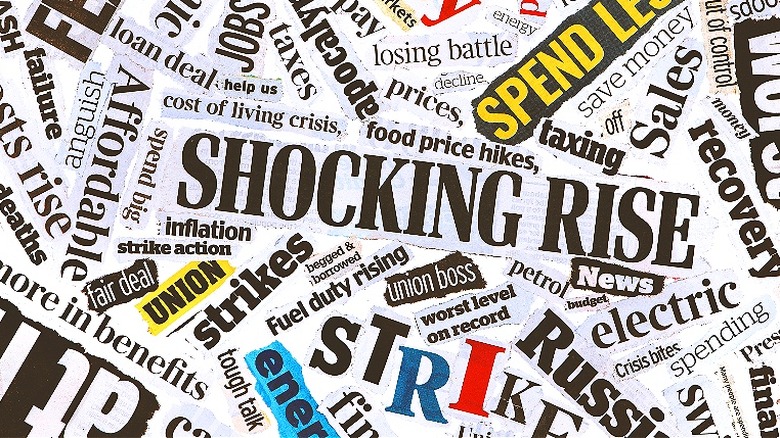How Long Does The Average Recession Last?
As evidenced by the bruising stock market decline on August 5, 2024, a softening job market, and other red flags, economists and investors alike are wondering if the U.S. is headed for a recession. Although recession might seem like a four-letter word to some stock market mavens, it's actually a natural part of the business cycle and can present some lucrative opportunities for savvy investors. (On that note, here's how to survive a recession and prosper when it's over.)
The organization that determines the start and end dates for a recession is the National Bureau of Economic Research (NBER). Per its definition, a recession occurs when there's "a significant decline in economic activity spread across the economy, lasting more than a few months." Going back to the days of our country's founding, there have been literally dozens of periods of recession. Looking at more recent data, however, there have been 13 recessions recorded since the end of World War II.
Although job loss and shrinking sales of goods and services can feel like a recession, it's ultimately up to the NBER to make the call if a recession is official or not. Generally (though not exclusively), that criteria is established by witnessing two consecutive quarters of negative economic growth, as determined by gross domestic product (GDP). This said, to address the titular question, the average length of a recession post-World War II is approximately 10 months. However, that stat doesn't quite tell the true story as some recessions in the U.S. have been painfully longer, while others have been much shorter.
The Great Recession earned its moniker
Beginning in December 2007, Americans endured the "Great Recession" following the bursting of the housing bubble and a financial bubble largely caused by failing subprime mortgages. The Great Recession (a portmanteau of Great Depression and recession) lived up to its name. Unemployment peaked at 10%, home prices plummeted by approximately 30%, and the benchmark S&P 500 index declined by 57%. All told, the Great Recession lasted about 18 months, the longest of any modern recession.
At the other extreme of this was the February 2020 recession that coincided with the arrival of the COVID-19 pandemic. Nationwide lockdowns designed to keep Americans inside of their homes and safe from the virus had the obvious side-effect of bringing the entire U.S. economy to a screeching halt. To be sure, the COVID-19 recession was deep. Unemployment spiked to 14.7% while GDP plunged a precipitous 31.4%.
However, the Federal Reserve quickly stepped in, in its bid to stem the fallout from the country's shelter-in-place order, cutting interest rates to near-zero. At the same time, the government approved multiple rounds of financial stimulus, including mailing out three checks to all adult citizens. As a result, the COVID-19 recession was the shortest recession ever for the U.S., lasting two months.
Recessions may coincide with global events
The Great Recession and the COVID-19 recession represent the two extremes for the duration of recessions, so let's take a look at a couple more well-known U.S. recessions that lasted closer to the NBER average of 10 months. To begin, who could forget the likes of Pets.com and the bursting of the internet bubble to start the 21st century. Known as the dot-com recession, analysts also blamed higher interest rates from the Fed for this early-aughts downturn, which lasted for eight months and saw the Nasdaq Composite index lose 77% of its value. (Speaking of, here's a quick explainer on what a stock market bubble is.)
Going a little further back in time, it's worth revisiting a mid-1970s recession caused by soaring oil, and, subsequently, gasoline prices. The catalyst for this malaise-era recession was the Organization of the Petroleum Exporting Countries (or OPEC) punishing the U.S. for supporting Israel during the Yom Kippur War. That revenge took the form of an oil embargo that quadrupled the price of fuel oil, which put a crimp on Americans' other spending habits. Although the oil embargo was short-lived, the resulting recession lasted a healthy 16 months.
Whether the recent weakening in the U.S. job market and overall economy turns into a full-blown recession remains to be seen. In a recent interview with "Meet the Press" (via The Associated Press), Treasury Secretary Janet Yellen rebuffed the idea that the country is entering a recession. Instead, she maintained employment is merely in a minor slowdown. Then again, Yellen is the same person who stubbornly maintained that soaring inflation was "transitory" and not a serious concern. If a recession is indeed on the horizon, let's hope it's a short one. (Here's more on the red flags of a recession.)


